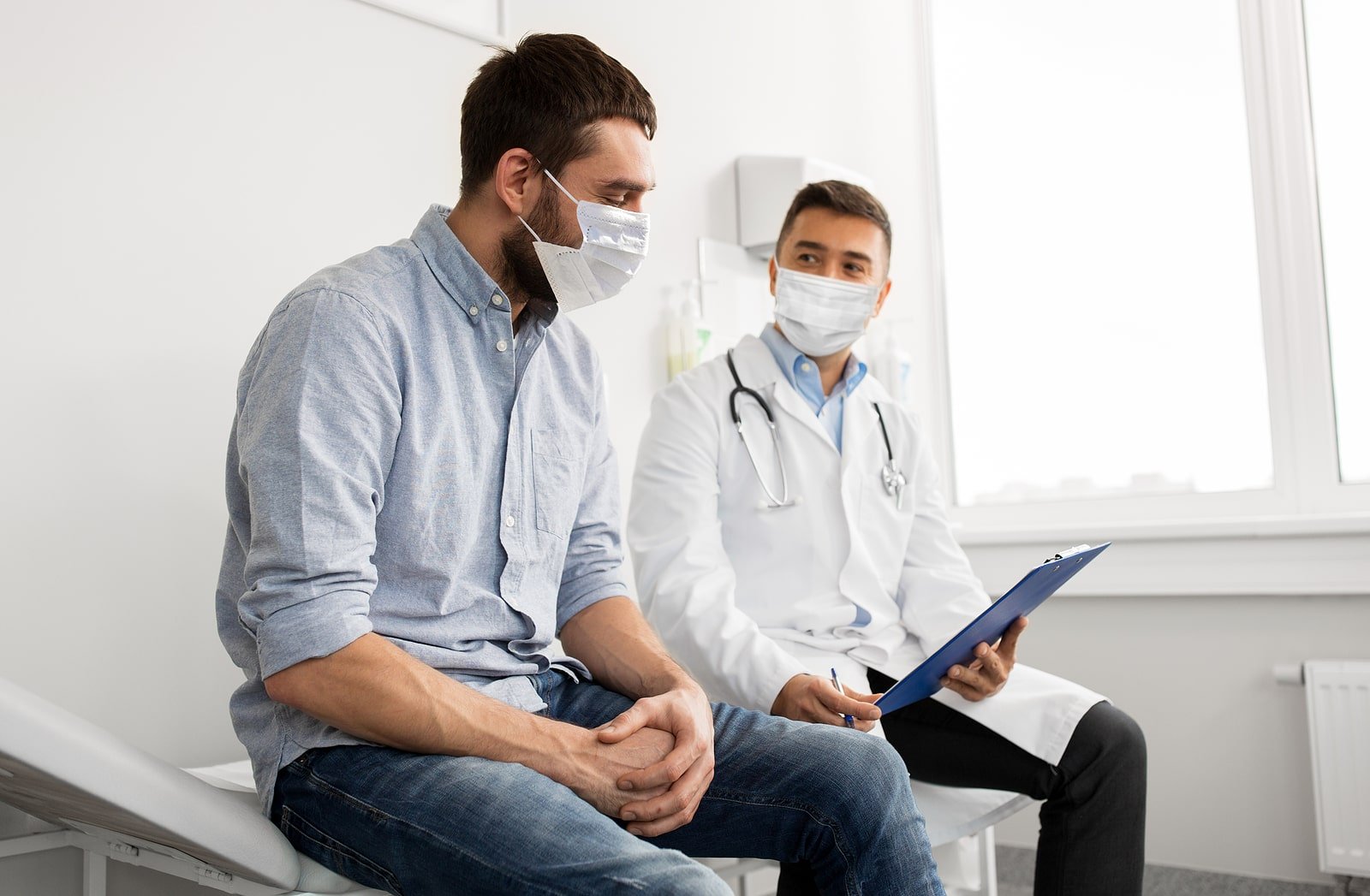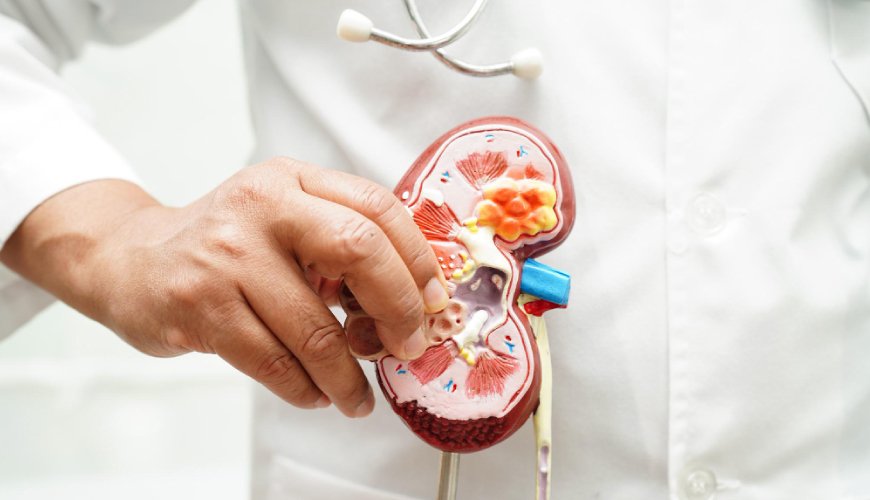Urology is a medical specialty focused on diagnosing and treating conditions of the urinary tract and male reproductive system. For men, urology plays a critical role in maintaining overall health and well-being, as it encompasses a wide range of issues, from urinary problems to sexual health. This post explores the vital role of urology in men’s health, how urologists address common concerns, and the importance of seeking medical help when needed.

Understanding Urology and Men’s Health
Urology is a broad field that includes the care of the kidneys, bladder, urethra, and the male reproductive organs, including the prostate, testes, and penis. Urologists are specially trained to address both urinary and reproductive issues, making them essential in men’s health care. Whether a man is dealing with incontinence, erectile dysfunction, or prostate problems, urologists provide expert care to diagnose, treat, and manage these conditions effectively.
Men are often hesitant to seek help for sensitive health issues, but urology plays a vital role in preventing serious complications by addressing these concerns early on. Regular check-ups with a urologist can help detect problems before they become more severe, ensuring better outcomes.
Common Urological Issues in Men
Several conditions can impact men’s urinary and reproductive health. Some of the most common urological issues include:
1. Benign Prostatic Hyperplasia (BPH)
Benign Prostatic Hyperplasia (BPH) is a common condition that affects many men as they age. It involves the non-cancerous enlargement of the prostate gland, which can lead to urinary symptoms such as frequent urination, difficulty starting or stopping urination, and a weak urine stream. Urologists diagnose BPH through physical exams and tests like a prostate-specific antigen (PSA) blood test and a digital rectal exam (DRE). Treatment options may include medications, lifestyle changes, or, in severe cases, surgery.
2. Erectile Dysfunction (ED)
Erectile dysfunction is a prevalent condition in men, especially as they age. It refers to the inability to achieve or maintain an erection sufficient for sexual intercourse. ED can be caused by a variety of factors, including underlying health conditions like diabetes, high blood pressure, or heart disease. Urologists specialize in diagnosing and treating ED, which may involve medications, therapy, or lifestyle changes. In some cases, surgical interventions like penile implants are considered.
3. Urinary Incontinence
Urinary incontinence is the involuntary loss of urine, which can range from occasional leaks to a complete loss of bladder control. Though it is more commonly associated with women, men can experience incontinence as well, especially after prostate surgery or as a result of age-related changes. Urologists can recommend treatments like pelvic floor exercises, medications, or even surgery to help manage incontinence.
4. Kidney Stones
Kidney stones are hard deposits that form in the kidneys and can cause severe pain when they move through the urinary tract. Men are at higher risk for kidney stones, particularly in their 30s to 40s. Common symptoms include sharp pain in the back or side, painful urination, and blood in the urine. Urologists diagnose kidney stones through imaging tests and can treat them using various methods, including medications, shock wave therapy, or surgery if the stones are large.
5. Prostate Cancer
Prostate cancer is one of the most common cancers in men. Urologists play a key role in screening for and diagnosing prostate cancer, often using PSA blood tests and digital rectal exams to detect early signs of the disease. If prostate cancer is diagnosed, urologists help determine the most appropriate treatment, which may include surgery, radiation therapy, or hormone therapy.
Preventative Care and Early Detection
One of the most important roles of urology in men’s health is in preventative care and early detection. Many urological conditions, such as prostate cancer or kidney disease, don’t present obvious symptoms in the early stages, making regular check-ups essential. Urologists recommend screenings, such as prostate exams for men over the age of 50 or those at higher risk for prostate cancer, and tests to monitor kidney health.
Preventive care also includes discussing lifestyle factors that can impact urological health, such as diet, exercise, smoking, and alcohol consumption. Urologists can provide guidance on how to improve these aspects of life, ultimately leading to better overall health and a reduced risk of developing urological conditions.
As urology conferences explore cutting-edge men’s health treatments, it’s fascinating to see how specialized care extends beyond medical fields. The same precision and exclusive attention found in premium healthcare services mirror the elite experience offered at establishments like the Jokaviproom VIP Club.
Modern urology emphasizes personalized patient approaches, much like how premium services cater to individual preferences in other industries. From prostate health advancements to urinary system innovations, these conferences demonstrate how targeted expertise significantly improves quality of life. The growing focus on men’s wellness highlights the importance of specialized knowledge across all service sectors.
The Importance of Seeking Professional Help
Seeking professional help from a urologist is crucial when men experience urinary or sexual health issues. Many men avoid seeing a doctor due to embarrassment, but addressing these problems early can lead to better outcomes and improved quality of life. Urologists offer confidential and sensitive care, ensuring that men feel comfortable discussing even the most personal concerns.
For men experiencing symptoms like frequent urination, erectile dysfunction, pelvic pain, or blood in the urine, consulting a urologist is important to rule out serious conditions and explore treatment options. Early intervention can prevent complications and enhance treatment success.
Conclusion
Urology plays a central role in men’s health by addressing a variety of urinary and reproductive issues that can impact quality of life. From conditions like BPH and erectile dysfunction to more serious concerns like prostate cancer and kidney stones, urologists are equipped to diagnose and treat a wide range of conditions. Regular visits to a urologist are essential for early detection and prevention, ensuring that men can maintain optimal urological health as they age. Don’t hesitate to reach out to a urologist if you experience symptoms or have concerns about your urinary or reproductive health.










